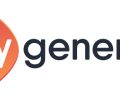One of the most effective ways of workplace learning is support offered by colleagues. When you have a question or problem, you find a colleague who knows the answer, you apply what you have learned and you go on with your job. Nothing new here, we all do this all the time. But there are two issues with this kind of support: Finding the colleague and the fact that it is always ‘one on one’. The knowledge transfer is limited to the two participants.
As any type of informal learning you can’t organize this, but you can facilitate this. You can make this support more effective by making it easier for people to find a colleague with the desired expertise or knowledge. And you can capture this knowledge and present it to other workers.
Yammer
If you had a way to ask questions to a selected group of colleagues this would help a lot. You can of course sent emails to all your colleagues, but you can probably see the disadvantages of that. A tool that could support you in this is Yammer. It is a Twitter-like tool where you can post tweets, but there are some differences with Twitter. The most important is that you can control who has access to your Yammer, based on email address or invitation. You can have longer messages than Twitter and include files and links. And very important you can make groups within Yammer, you can use this to create virtual expertise centers. Offering you a way to ask a specific question to a specific group of colleagues. Using certain hash-tags (#) would make searching even easier. It’s a very powerful and easy way to facilitate this process. You can use Yammer for free, it is a hosted web solution and you can use desktop and mobile apps. Starting it up is a question of minutes. There is also a paid option, offering you extra security.
ELGG
There are tools where you can do more. You can use social network sites where people create a profile of themselves. Instead of hobbies like you do in Facebook, you can describe your expertise in your profile. People can search on it ans ask questions. These kind of tools offer way more facilities. You can set up your private corporate network with tools like ELGG. Because of the extra possibilities it is more work to get them to work and maintain them. I would only look at tools like ELGG if you have a use for all the other options tools like this offer.
Formalizing the knowledge
What about the learning department, do they play a role? Yes they should. Monitoring the information will give you loads of valuable information. You can apply these in your regular courses, but even better would be to create a Frequently Asked Question list or emerging practices. If you formalize the information in this way and make it available you would be adding value. You will create a knowledge goldmine!
This is the third post on bringing learning to the workplace, other post are on learning nuggets and SpacedEd



